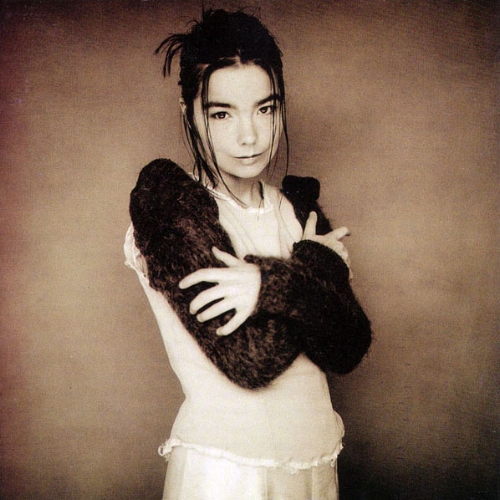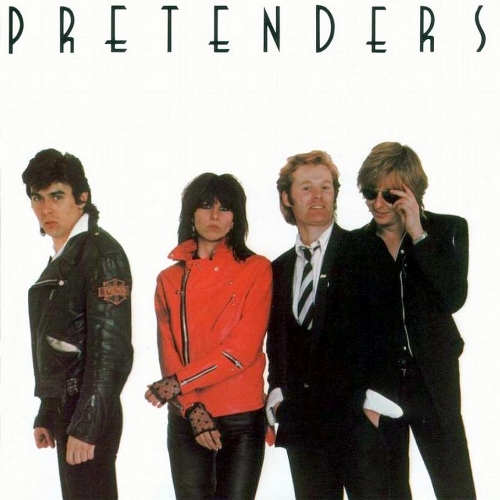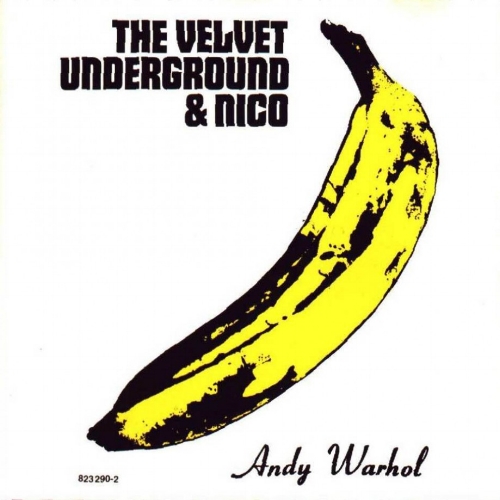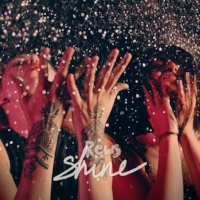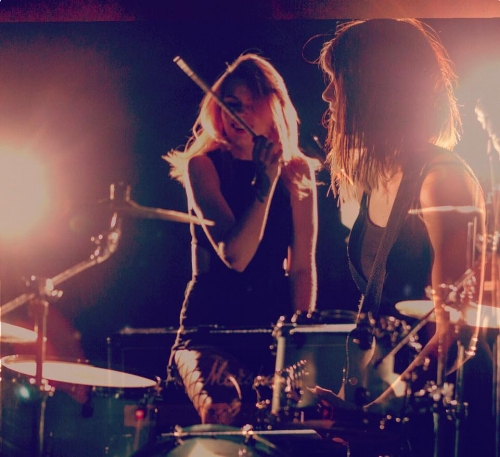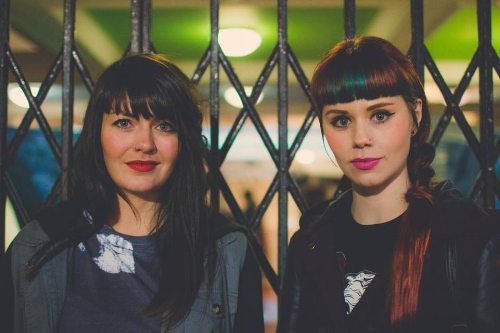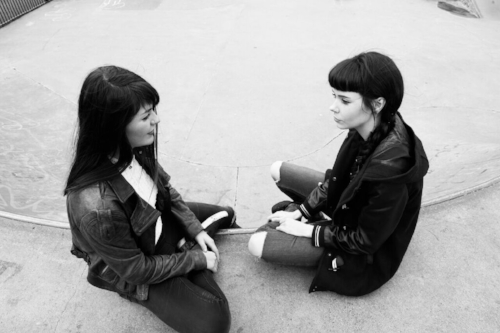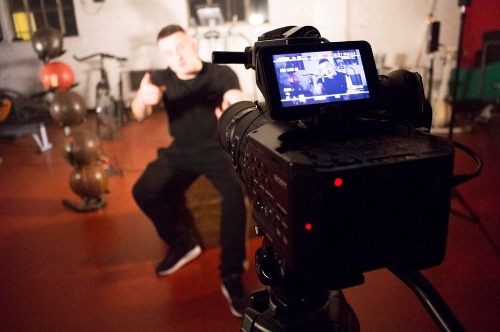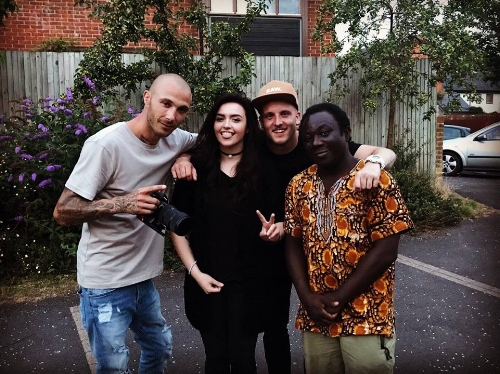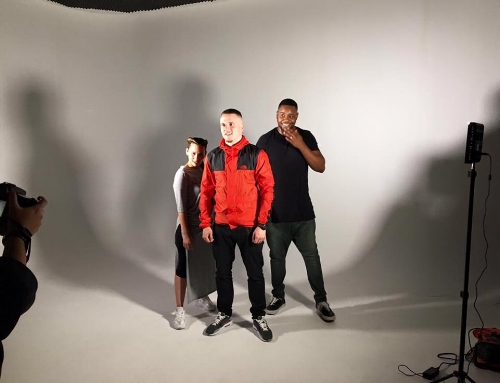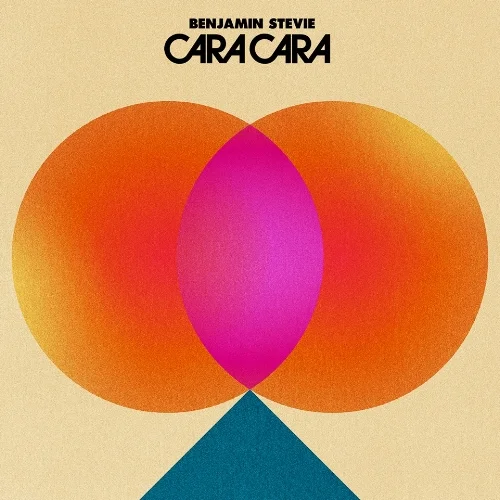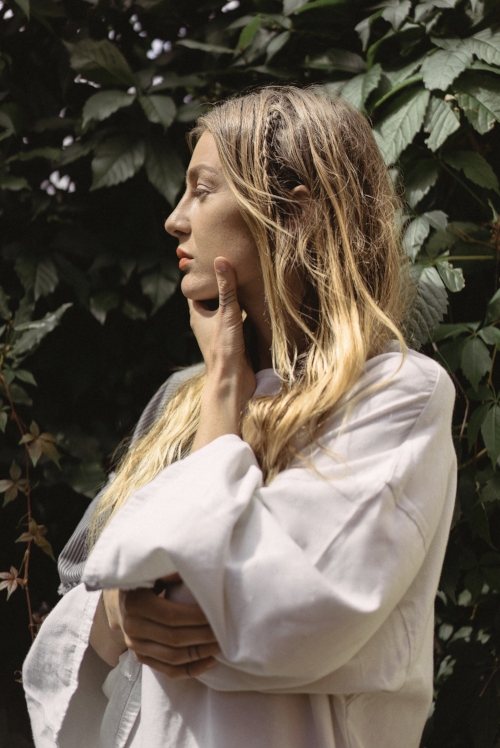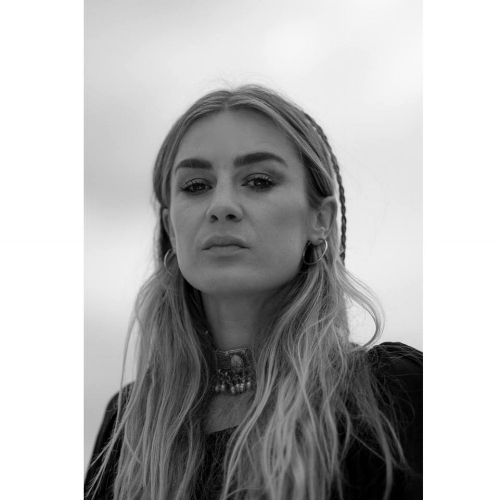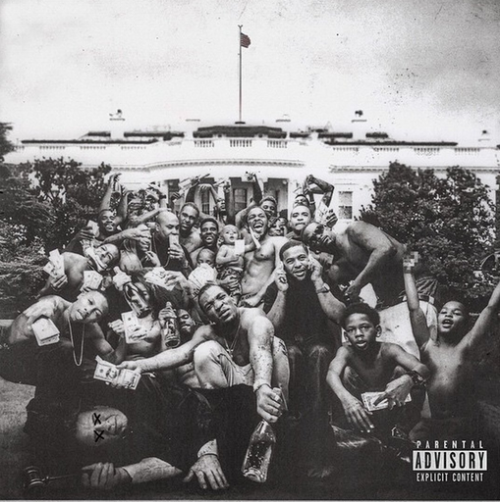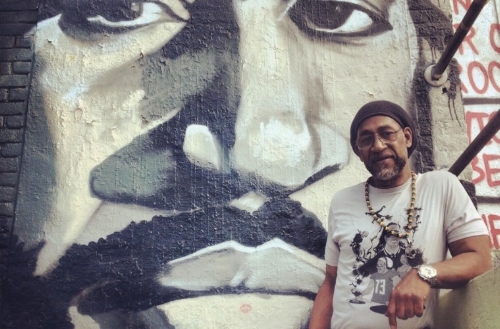FEATURE:
Globetrotting (Part Two):
IN THIS PHOTO: Tash Sultana/PHOTO CREDIT: @hellomikeamico
Thirteen Artists to Watch
________
THE second part of my feature looks outside of London...
IN THIS PHOTO: YONAKA/PHOTO CREDIT: Tom Bronowski
well, for most of the acts – and recognises artists emerging from other parts of the planet. There are three more installments to come so, in this second segment, I take my sights to artists I feel will be making some impressive-sized waves in the coming months.
This list looks at some quality American acts with the finest of British; some treats out of Canada and France – a variety of sounds and treasures for the ears. There are a couple of Australian wonders and a real compendium of awesome music and intriguing personality.
Over the coming weeks, I will delve further into new music and collate the brightest and rarest music specimens around – those primed for big things as we creep longing towards 2018…
________
The Aces
Location: Utah, U.S.A.
Genres: Pop; Rock
Essential Song: Baby Who
Reasons to Watch: In June; the girls released their E.P., I Don’t Like Being Honest. They are playing in the U.S. right now but, on 27th September, they play Hoxton Square Bar & Grill and It will be a chance for the British crowds to see the band and what they are all about. The E.P. mixes 1980s-Pop and the sort of Pop/Indie of Haim and Shura. It is an intoxicating brew that is perfect for the summer weather – powerful enough to bring heat and good weather to the British crowds!
Follow: https://www.facebook.com/acesmusic/
The Wild Things
PHOTO CREDIT: Marcus Maschwitz
Location: London, U.K.
Genre: Rock
Essential Song: F.I.A.
Reasons to Watch: One of the biggest regrets, musically, this year – aside from not punchy Ollie Murs when he passed by me in London one day - was when I missed The Wild Things play The Lexington recently – I was afflicted with a nasty cold so felt best not to spread it to them and large sections of London. They claim, the coolest line in a review (of theirs) was "Boiler suits and swaying hair move deliciously with slide guitar" – it is a pretty good line. The guys have news planned and it seems like something big will be going down before we close 2017. Led by siblings Syd and Cam; Rob and Pete amply provide oodles of grit, swagger and talent – they are a kinetic, eclectic and assured Rock band that is among London’s most promising.
Follow: https://www.thewildthings.biz/
Pillow Queens
Location: Dublin, E.I.R.E.
Genres: Rock; Alternative
Essential Song: Rats
Reasons to Watch: Those who have seen the Irish band perform live – I am among them – can attest at how charming, loveable and explosive they are. They are one of the most passionate bands around but charm crowds with their between-songs banter. Calm Girls, their 2016-E.P., is a stunning three-track everyone should get involved with. This year has been a successful one that has seen the quartet play their first London gig – important steps and big successes are sure to follow.
Follow: https://www.facebook.com/pillowqueens/
Bishop Briggs
Location: Los Angeles, U.S.A.
Genre: Alternative
Essential Song: The Way I Do
Reasons to Watch: There is something alluring and captivating about L.A. songwriter Bishop Briggs. The ponytailed hair and intense stare – a lyric forming there… - mixes with an incredible voice and songwriting gift that makes it hard to compare her with anyone else. Her eponymous E.P. (released this year) bursts with confidence, incredible passion and one of the strongest voices in modern music. She is a unique and captivating artist whose blend of quirky and loveable personality is almost as remarkable as her fresh and phenomenal music.
Follow: https://www.facebook.com/thatgirlbishop/
Sonia Stein
Location: London, U.K.
Genres: Alternative; Pop
Essential Song: One of Those Things
Reasons to Watch: I will be seeing Sonia Stein when she plays my night at #Blogtober (5th) in October. Before then, she is enjoying the love her E.P., One of Those Things, is receiving. Sixes & Sevens, the last of the singles from her E.P., has been unveiled and it seems like Stein has a busy few weeks ahead. There are gigs and promotional duties; I am sure she has plans for more music in 2017. There are few that have the same set of ingredients as Stein – one of those artists that can assimilate popular demands and integrate her own heartbeat and personality into the music. Her beauty and sensuality feed into the music and combines with vibrant and emotive compositions. There is plenty of movement, fizz and energy in her compositions. A musician and human that makes music for the people – even when the songs stem from her personal pages. Someone to watch very carefully.
Follow: http://soniastein.com/
Happy Hollows
Location: Los Angeles, U.S.A.
Genre: Indie-Rock
Essential Song: Feel the Moon
Reasons to Watch: The guys have just released the new single, Meteors, and are preparing for the album release party on 29th September. Concordia is a record you will want to get a hold of because, the songs the Los Angeles group have put out, are incredible. The Art-Rock duo is, as they admit, an unlikely match: two polar-opposites consisting Northern California’s Sarah Negahdari and graduate student/bassist Charlie Mahoney. They met when Negahdari was ready tarot cards at a strip mall (yep) and, since that peculiar meeting, have performed hundreds of shows to adoring crowds. They are better known in their native America but it cannot be long until they are a huge fixture in this country – and the rest of the world!
Follow: http://www.happyhollows.net/
Tash Sultana
PHOTO CREDIT: Dara Munnis Photography
Location: Melbourne, Australia
Genre: Alternative
Essential Song: Murder to the Mind
Reasons to Watch: If you have not heard this Australian treasure; you owe yourself the pleasure of discovering her music. In an industry where there are few genuine originals: Tash Sultana is a magnificent artist whose mix of sounds and incredible voice puts her music directly into the brain. There is the same dexterity and eccentricity one notices in Nelly Furtado’s voice but that would sell Tash Sultana short – she has so many different sides and is a lot more accomplished as a musician and lyricist. She started with homemade videos and busking the streets. Now, the Melbourne resident is on the cusp of the big-time and has a series of international tour dates approach. I will have to catch her when she comes over next month – her final date here is 02 Shepherd’s Bush Empire on 14th.
Follow: https://www.tashsultana.com/
Tonight Alive
Reasons to Watch: Like country-mate Tash Sultana: Tonight Alive have a busy tour diary but are performing in Australia-only, it seems. They have international appeal but are keen to make their stamp on their native population. They have seen their music featured on The Amazing Spider-Man 2 and are a Rock band that brings energy and intensity to every song they perform. Led by the phenomenal and compelling Jenna McDougall; it seems there is a big future mapped out for the Sydney quintet. I hope they do come to the U.K. as there is a lot of love waiting for them here!
Follow: https://tonightalive.com/
XamVolo
Location: London/Liverpool, U.K.
Genre: Electronic-Soul
Essential Song: Old Soul
Reasons to Watch: In a lot of ways; there are similarities between XamVolo and the ethereal Benjamin Clementine. Both have natural cool and modesty; a voice that defies gravity and beauty – able to lacquer darkness and provide light to the impossible. The differences like in the sonic backdrops. Whereas Benjamin Clementine has a more poetic and preacher-man calm: XamVolo is a raw and energised prophet whose voice is propelled and backed by teasing beats and swirling electronic vapours. With new material brewing – an acoustic version of Old Soul was unveiled last month – it is only a matter of time before an album/tour is announced.
Follow: http://www.xamvolo.com/
Charlotte Cardin
Location: Montreal, Canada
Genre: Alternative
Essential Song: Dirty Dirty
Reasons to Watch: Washington, Philadelphia and Boston are upcoming dates for Charlotte Cardin. A remarkable musician whose voice, often, is backed by crackling beats and moody pauses – atmosphere and epic possibilities from an artist who is capable of tender consideration and out-there confidence. Accompanied by Mathieu Sénéchal and Benjamin Courcy; it is a musical proposition that fits perfectly into the Canadian music scene. Further dates across the U.S. follow and, after releasing the incredible Bad Boy E.P., there is a lot of demand for Cardin and her music. I hope she is another artist planning a sojourn to Britain – the reception she would get would be immense.
Follow: http://www.charlottecardin.com/
Odd Couple
Location: Berlin, Germany
Genres: Rock; Classic-Rock
Essential Song: Gone Solid
Reasons to Watch: I have reviewed these guys and was lucky enough to dive into Flügge and a modern Rock masterpiece. The band is unconcerned with the generic and shallow Rock music of today. They nod back to the bands of the 1970s: a time when there was genuine spirit and innovation in the genre. As such; one gets dirty and instant riffs; songs that address the world around them and more originality than most artists of their ilk. The duo is playing Europe in the coming weeks and, one suspects, they will have time to pop to the U.K. They have played Luxemburg and Norway and are amazing and rocking crowds on the continent. A musical force you definitely need in your life!
Follow: http://www.oddcouple.de/
YONAKA
Location: Brighton, U.K.
Genres: Alternative; Alt-Pop
Essential Song: Wouldn’t Wanna Be Ya
Reasons to Watch: Led by the incredible and nuanced voice of Theresa Jarvis; the Brighton four-piece headline The Borderline on 14th September and will be their biggest London show yet. Things are getting bigger and better for the band. There are singles being dropped here and there so it only seems natural they will collate into an E.P. I am not sure what the guys are planning but, judging by the reaction their live shows are getting, there is a lot of demand for them. Their hooks and songs consort with darker forces but there is something accessible and mainstream-ready about them. A deep and exciting brew of sounds and scents that singles the band out for great things. Make sure you follow their careers – there are big things ahead of them.
Follow: https://www.facebook.com/weareYONAKA/
HEZEN
PHOTO CREDIT: Isaac Murai
Location: Paris, France/London, U.K.
Genres: Electronic; Trip-Hop
Essential Song: Smoke & Mirrors
Reasons to Watch: Sarah Hezen has gained comparisons to the likes of Massive Attack and Portishead; the inventiveness and quirk of Björk but, comparisons aside, what one hears is a unique artist that has a very impressive story. She has been performing dates in London and divides her time between genre and France – HEZEN is a French artist but is finding opportunities and love in Britain. Her E.P., Stigma, was released earlier this year and it is clear there is more afoot. One only need take a brief hit of her music to be stunned and taken somewhere else. It is so evocative and physical it moves the mind, body and soul. Another artist with a very clear and prosperous future ahead – there are few quite like HEZEN.

















